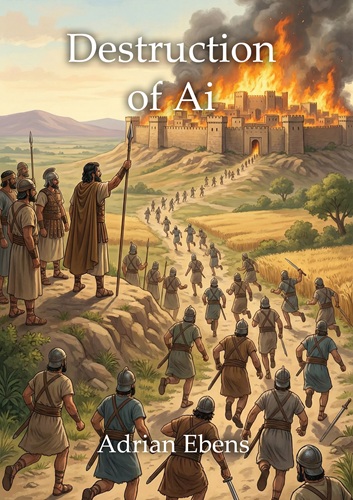Identity of Indiscernibles
I came across an interesting Wikipedia article not long ago about a very interesting thing called the identity of indiscernibles. This principle was developed by the German philosopher Gottfried Wilhelm Leibniz. The principle states that if we have two entities (these could be beings, objects, or other things) which have all things (properties) in common, then they are identical and can't be distinguished. Of course what is and isn't properties of an entity can be debatable, but it may include things like width, height, shape, personality, and so on. The wikipedia page on identity of indiscernibles explains it this way:
The identity of indiscernibles is an ontological principle which states that two or more objects or entities are identical (are one and the same entity) if they have all their properties in common. That is, entities x and y are identical if any predicate possessed by x is also possessed by y and vice versa.
The Wikipedia article on the philosophy of space and time explains it in a very interesting way[1]:
The identity of indiscernibles states that if there is no way of telling two entities apart then they are one and the same thing.
From an ontological perspective, this reminds me of the Trinity, except of course the case is with three entities, which we know are divine beings. Whether you take the view of Tri-theism or the traditional, catholic Trinity, you can still apply the identity of indiscernibles.
With Tri-theism (as I understand it), we have three separate beings that the Father, Son, and Holy Spirit, which share the same properties with one another. Therefore one or all of them can be referred to by the name God; "they are one," all under the name God. Because they are identical, sharing all the same properties, they are all God, and, apart from their labels (which are not properties of theirs), are not distinguishable from one another.
With the Trinity, it's much the same, except instead of three separate beings we have three personages in the one being. They share the same properties with one another, and all make up God. Since this is all in one being, the phrase quoted above, "they are one and the same thing," really applies in this case.
God by Property, God by Power
I want to come back to something I mentioned earlier, the three beings are all God because they share the same properties. This raises an interesting point. Property is something that is owned by someone. The dictionary defines the word "property" as, "a thing or things belonging to someone" or "an attribute, quality, or characteristic of something." Property can be viewed as an expression of power or performance. For example, people who have a lot of money (a property of theirs) are considered more powerful than people who don't. My point is, in the Trinity (I mean either Tri-theism or the traditional Trinity by this from now on), taking into account the identity of indiscernibles, the three beings are all God, identical and one with each other, because they share the same properties. Given what I've just said, we can bring the word "properties" down to "power" or "performance."
Do you see what I'm getting at here? This supports the power/performance system of equality, instead of the relational system. Let's focus on the Son; why is he equal with the Father? Is it because of His power and all the things attributed to Him? Or is it because of His relationship with the Father, the fact that He can understand the Father, and because the Father said that the Son is equal with Him?
Equality
I want to spend a quick moment on the subject of equality. In the Trinity, the power/performance system of equality is used. In the Fountarian view, the relational system of equality is used. Before I continue, let's take a look at the mathematical definition (in, I think, second-order logic) of the identity of indiscernibles:

Although I certainly don't fully understand this intriguing array of symbols, I can see the general meaning of it. If x and y share the same properties, then x is equal to y. Notice how equality is used here. And what is the basis of this equality? Properties of course, which in our case can be interpreted as power or performance. This denotes the power/performance system of equality.
In contrast the relational system of equality says that the Son is equal with the Father because the Father made it so.
Indiscernibility
Since the three beings in the Trinity share the same identity, but are still labeled three different names, the mind finds it hard to keep a distinction between the three; after all, they are indiscernible. The fact that they are indiscernible, and therefore interchangeable, is illustrated well by this quote:
But imagine a situation in which the being we have come to know as God the Father came to die for us, and the one we have come to know as Jesus stayed back in heaven (we are speaking in human terms to make a point). Nothing would have changed, except that we would have been calling each by the name we now use for the other. That is what equality in the Deity means. Sabbath School Lesson April 10 2008.
Sadly, this is actually believed by many. How am I meant to have a personal relationship with someone that can't be discerned?
I made a small animation some time ago, for an article that Dad wrote, which also illustrates this confusion. You can view it below:
{swfremote}http://www.maranathamedia.com/site/download/videos/TrinityExample.swf{/swfremote}
If you can't see the animation, but instead see text starting with "{swfremote}", view the article here.
This animation represents the confusion of mind that occurs when someone tries to discern one being from the others. It also illustrates quite well the identity of indiscernibles; the three circles don't differ in anything apart from their labels, so they are merged together under one identity.
Taking the circles example further, if I were to remove the labels from the circles and shuffle them around, can you tell me which is which? Of course not. This is a demonstration of the indiscernibility of identicals[2]. This is also a demonstration of what happens when the general name "God" or "Lord" is used, which could refer to any one of the three beings, as they are identical.
We would suggest that God in His Trinitarian self-revelation, has claimed that He created us to reflect the love that supernaturally resides in His very being as an eternally loving God who is one in three. Whidden, Moon and Reeve, The Trinity Page 247
With Tri-theism, three separate, identical beings are merged under the one identity, according to the identity of indiscernibles. With the traditional Trinity, three personages are physically merged, and also merged under the general name of "God" or "Trinity." Thus we have three in one, one in three.
Let's look at some Bible verses to illustrate the confusion that comes when we can't discern who is being talked about when God is referred to.
John 17:3: And this is life eternal, that they might know thee the only true God, and Jesus Christ, whom thou hast sent.
Who's being referred to by "God"? Is it the Father, Son, Holy Spirit, or the whole Godhead? The Son can't send himself, and if it were the whole Godhead then obviously the Son was still part of sending himself. And anyway, since under the Trinity "God" can refer to any or all of three beings, it could be taken either way, opening the door to spiritualisation of the word.
John 3:16: For God so loved the world, that he gave his only begotten Son, that whosoever believeth in him should not perish, but have everlasting life.
Another example from a well known verse. Who gave the Son?
And what about the term "Son of God" (which you can find in many, many verses)? Does it mean Son of the, Father, Son, Holy Spirit, or entire Godhead? I could go on, but you get the point. Having three indiscernible beings makes things rather confusing.
Conclusion
I find the identity of indiscernibles, and how it brings out the confusion of the Trinity in a new way, to be very interesting. In this article, I have certainly not covered all the things that this principle could be applied to, but I hope that what I have written has been thought provoking. Thanks for reading!
Footnotes
[1] Here's a link to the section where it does: Leibniz and Newton.
[2] This is talked about in the Wikipedia article on the identity of indiscernibles here and here.




